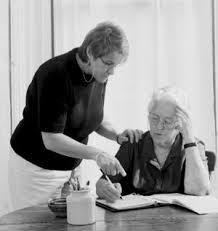According to the Administration on Aging, there will be a “significant increase over the next 30-40 years in the number of elderly persons.” Unfortunately, increases will also occur in the number of senior citizens suffering financial abuse. Financial abuse is the number one form of abuse currently perpetrated on seniors. Adult Protective Services reports that the number and complexity of reports involving financial abuse of vulnerable and older adults has grown significantly over the past decade.
The National Committee for Prevention of Elder Abuse (NCPEA) has found that this form of abuse spans a broad spectrum of conduct, including:
• Forging an older person’s signature
• Taking money or property
• Getting an older person to sign a deed, will, or power of attorney through deception, coercion, or undue influence
• Using the older person’s property or possessions without permission
• Promising lifelong care in exchange for money or property and not following through on the promise
• Confidence crimes (“cons”) that use deception to gain victims’ confidence
• Telemarketing scams. Perpetrators call victims and use deception, scare tactics, or exaggerated claims to get them to send money. They may also make charges against victims’ credit cards without authorization
Who are the perpetrators?
- According to the NCPEA, abusers include the following:
(1) Family members. They may be sons, daughters, grandchildren, or spouses who:
• Have substance abuse, gambling, or financial problems
• Stand to inherit and feel justified in taking what they believe is “almost” or “rightfully” theirs
• Fear that their older family member will get sick and use up their savings, depriving the abuser of an inheritance
• Have had a negative relationship with the older person and feel a sense of “entitlement”
• Have negative feelings toward siblings or other family members whom they want to prevent from acquiring or inheriting the older person’s assets
(2) Predatory individuals who seek out vulnerable seniors with the intent of exploiting them. They may:
• Profess to love the older person (“sweetheart scams”)
• Seek employment as personal care attendants, counselors, etc. to gain access
(3) Unscrupulous professionals or businesspersons, or persons posing as such. They may:
• Overcharge for services or products
• Use deceptive or unfair business practices
• Use their positions of trust or respect to gain compliance
Why are the elderly attractive targets?
• Persons over the age of 50 control over 70% of the nation’s wealth
• Many seniors do not realize the value of their assets (particularly homes that have appreciated markedly)
• The elderly are likely to have disabilities that make them dependent on others for help. These “helpers” may have access to homes and assets, and may exercise significant influence over the older person
• They may have predictable patterns (e.g. because older people are likely to receive monthly checks, abusers can predict when an older person will have money on hand or need to go to the bank)
• Severely impaired individuals are also less likely to take action against their abusers as a result of illness or embarrassment
• Abusers may assume that frail victims will not survive long enough to follow through on legal interventions, or that they will not make convincing witnesses
• Some older people are unsophisticated about financial matters
• Advances in technology have made managing finances more complicated
What can you do?
Any person who suspects that abuse of an elder has occurred can and should report it. Another’s assets, health, dignity and/or life may depend upon your courage to act. Abuse can continue and often escalates if there is no intervention. Known or suspected cases of abuse should be reported to agencies such as Adult Protective Services (at the Department of Job and Family Services) or the local law enforcement agency in your area. When in doubt, err on the side of caution and report.


